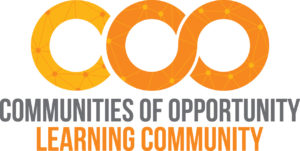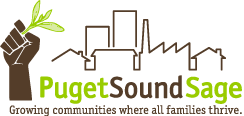Lake City Collective
About
Lake City Collective empowers communities across cultures in North Seattle. Lake City Collective is a minority-led, grassroots organization that supports families and individuals remain in the community they choose to live, work, or do business, where they feel heard, respected, safe, successful, and surrounded by a clean and healthy environment.
Website: lakecitycollective.org
CREST Representative: Cesar Garcia (he/him)
Why did you join CREST?
LCC joined the CREST cohort to learn about different models of stewardship implemented across the U.S. specially in our region. At the same time, we want to be part of a network of organizations working on improving their communities by building their infrastructure and access to resources.
If you are working on a project, what is the project, where is it located, and who is it for? What is the vision and purpose of your project?
We're in the capacity building phase in our organization. Our goal is to build the first multicultural center in North Seattle, we're underrepresented communities living in our area can have a place they can call home, a space to celebrate their culture, rescue their traditions and language and have access to opportunities; a safe place to have cross-cultural discussion on how to improve our own lives, and shape our own destiny.
What are you proud to have accomplished so far related to your project or related to your community stewardship of land efforts?
We proud of ourselves for practicing multiculturalism and with that mutual understanding. Residents mainly from North Seattle and North King County from different ethnic origins and backgrounds trust us and believe in our project, even if we don't speak the same language, as we all experience the same barriers and issues and want the same success for our children. We have also been able to connect with local businesses and landlords to better understand our area and that way make local connections that we hope will translate in equitable partnerships down the road. Additionally, we have increased our capacity, from a two-person organization to a CBO of ten people that makes our core group, working hard to make a name to give visibility to our different communities.
What are the next steps for your organization in realizing your project vision?
We've been working at different levels, internally and externally to build our organizational foundation and then eventually have the capacity to fundraise to build our multicultural center. In 2021, and thanks to capacity building grants from the Equitable Development Initiative program (OPCD) and 4Culture, we will continue building our organizational foundation and plan on starting the community process to create and schematic design of our dream center, while we continue our search for a property where we can make this a reality for our communities in the North end.
What support and expertise are you looking for?
Fundraising support would be great to have while we work on the visioning of our center.

TraeAnna Holiday, CREST cohort member from Africatown Seattle:
"I am so honored to be a part of what Puget Sound Sage is doing in this city. They brought together 20 organizations who may not have known each other, and together we are taking progressive models that are happening across the nation to reform and develop our spaces, have ownership in our spaces, create and rebuild our communities, and reclaim what has been taken from us. I represent Africatown Seattle, and if you know of what the Central District has gone through - it has suffered a great deal of gentrification, inequity and displacement. Africatown is working hard on the ground to develop buildings that are bringing our communities back.
For me, this is very personal. My family was displaced in 2003 and my parents had to buy a home in Federal Way. I have never known of Federal Way before. I grew up in the Central area, and it was all I knew for my whole life. It was so heartbreaking to my mother for us to have to move. We are one family, but displacement has affected so many more. This is why I’m so excited to be a part of this cohort. With the work of Puget Sound Sage, I am learning more on how to do this in a progressive way, ensure that we keep affordability for our communities and for our people, and to come back to spaces that we grew up in that we know and love.”
